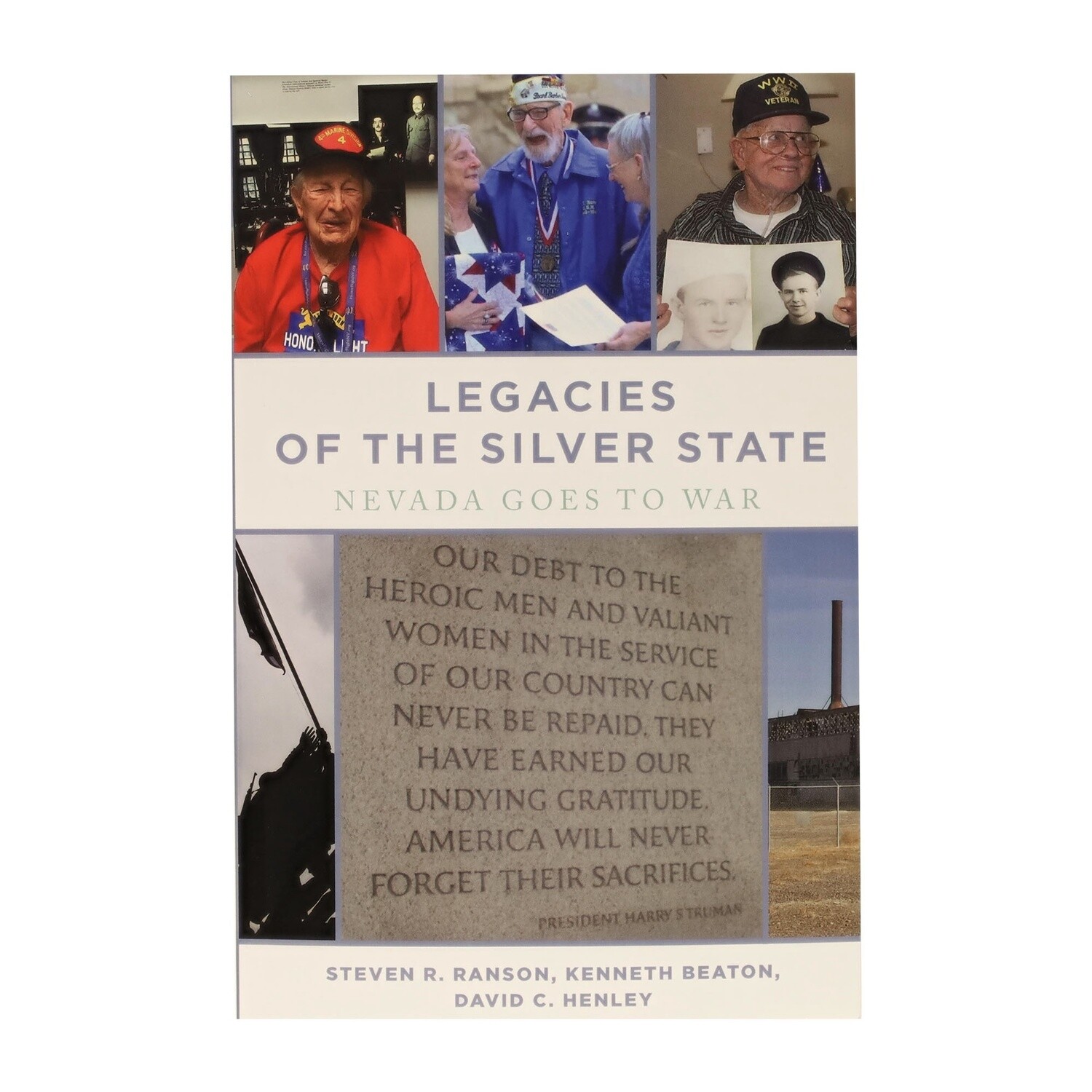Legacies of the Silver State
Legacies of the Silver State: Nevada Goes to War by Steven R. Ranson, Kenneth Beaton, David C. Henley
"Life in the United Sates changed on one Sunday in December 1941.
At 2:31 p.m. Eastern Time on CBS radio, newscaster John Daly interrupted programming to announce a catastrophic attack near Oahu... "We interrupt this program to bring you this special announcement. "The Japanese have attacked Pearl Harbor, Hawaii, by air, President Roosevelt has just announced. The attack also was made on all naval and military activities on the principal island of Oahu."
When news broke that planes from a Japanese carrier group had bombed part of the Hawaiian island of Oahu and the U.S. Navy's fleet at Pearl Harbor, Nellie Nelson, who formerly lived in Sacramento in the early 1940s with her two toddlers, leaned closer to her radio to listen to the ominous news of the attack. "I was stunned, you bet," said Nelson.
Then, the 25-year-old mother was very frightened, especially after learning armor-piercing bombs destroyed many U.S. Navy warships. Then volunteers walked house to house, telling occupants to darken their houses by turning off outside lights and pulling drapes where no light shined through any cracks. Concern grew if the Japanese attacked Pearl Harbor, then a fleet of ships and planes could sail east and bomb along the coastline from Washington State to California and into the inland communities.
America swung into action.
From lowering the ramps of landing ships at Normandy on June 6, 1944, to crawling on the snow on their bellies and enduring extremely harsh weather during the Battle of the Bulge, to providing medical care on a remote island in the Pacific, American men and women showed intrepidness and bravery when facing the enemy. POWs, survivors of the Nazi concentration camps and veterans told in detail where they were and what they did."
Dimensions: 6 x 0.8 x 9 inches
Format: Paperback
Page Count: 281
